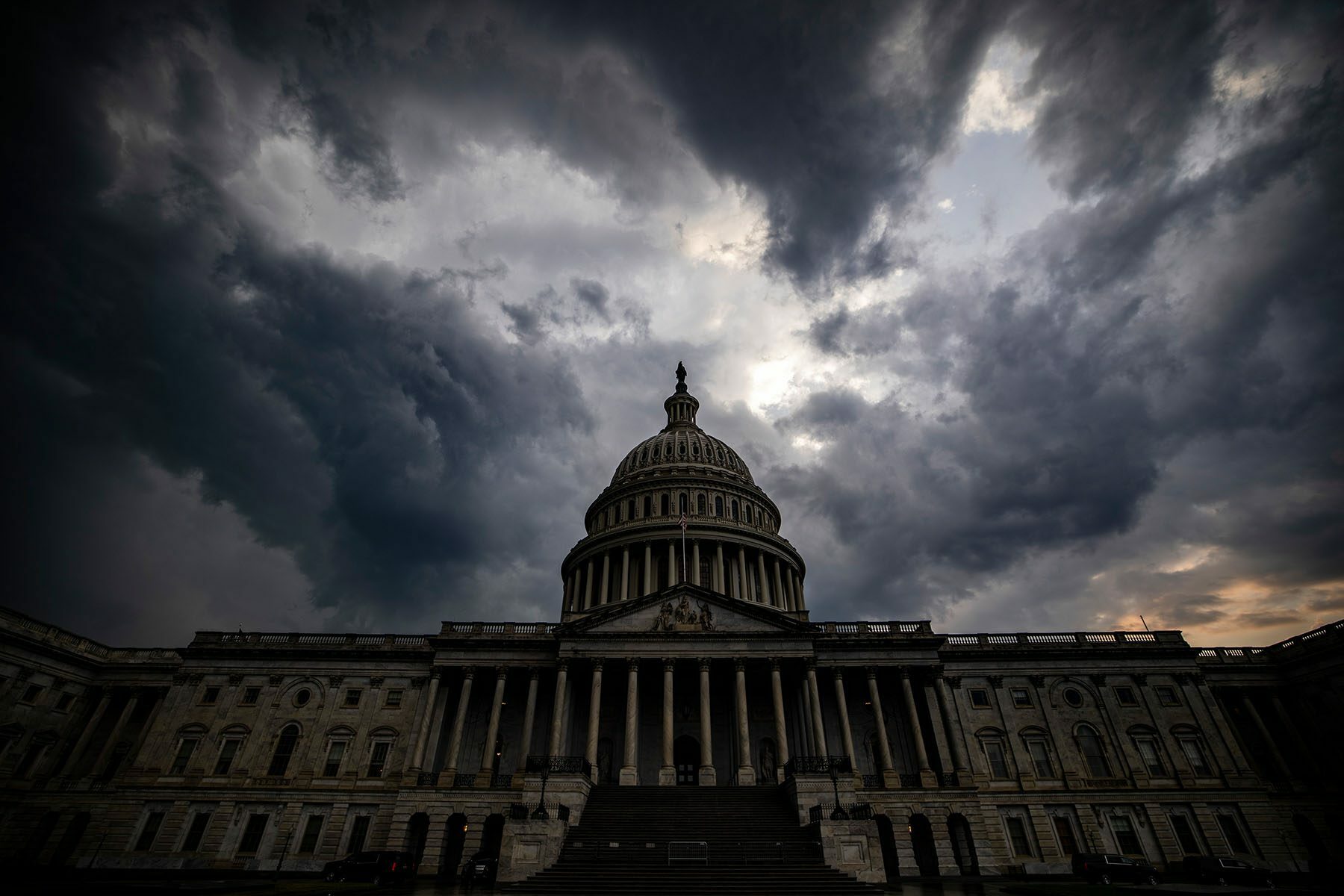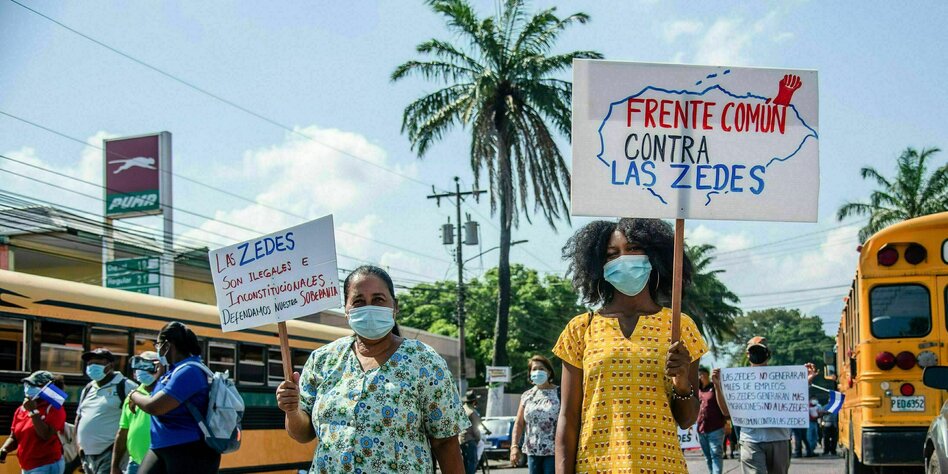US sanctions are losing their effectiveness
20 Jan, 2022 19:31
Bradley Blankenship

FILE PHOTO. U.S. Capitol Building. © Getty Images / Samuel Corum
The United Nations Economic Commission for Latin America and the Caribbean (CEPAL) released its annual report this month — and it showed rosy economic forecasts for countries such as Cuba, Venezuela, and Nicaragua.
It predicted that the Cuban economy will grow by 3.5% in 2022, and those of Venezuela and Nicaragua should both see increases of 3%. These figures are all above the regional average of 2.1% for Latin America and the Caribbean, and ahead of major economies such as Brazil and Chile.
Separately, Switzerland’s Credit Suisse bank predicts that Venezuela’s economy could grow up to 4.5% in 2022 and says 2021 growth could even be as high as 8.5%. For his part, President Nicolas Maduro reported to the country’s congress that the economy grew by 7.6% in the third quarter of 2021 and probably grew “more than four percent” in the whole year on the back of exports.
What’s remarkable about these figures — and, in particular, that Venezuela’s economy is thriving after experiencing runaway inflation — is that the growth is happening despite unilateral sanctions from the United States, the world’s largest economy.
Read more: US hypocrisy could kill millions in Afghanistan’s famine
It begs the question of whether these sanctions are as effective as they used to be — and the answer would appear to be no.
First of all, it’s important to define what an effective sanctions regime actually is. The US often claims that its penalties are intended to promote human rights by punishing states that violate them; however, it would be naive to take Washington at its word, since it maintains close ties with some of the world’s worst human rights violators.
The real goal of sanctions is to destabilize countries and potentially cause civil unrest to the point that it spurs regime change. At the minimum, they are intended to derail the success of social programs initiated by target states (for example, public ownership over natural resources).
In terms of the promotion of human rights, which Washington claims is its goal, or the destabilization of governments — as is the actual goal — unilateral sanctions are not often entirely successful. But there is certainly an argument to be made that they have slowed the rate of social progress made by some governments, such as those in Cuba or Venezuela, although even this is a trend that looks to be on the wane.
One of the major reasons why sanctions are no longer as effective is because the contradictions are so obvious. The American public doesn’t believe that they are intended to address human rights and is seeing more and more how they can starve the average person. Countries around the world see this too – and they also realise how this perverse logic (or lack thereof) hurts them.
In a recent column for RT, I discussed Syria signing up to China’s Belt and Road Initiative (BRI), and how it could be a game-changer in allowing the country’s post-war economy to flourish. But it should be noted that Syria’s neighbors had already lobbied for exceptions to Washington’s brutal sanctions regime because it was impacting the regional economy.
The US is reportedly weighing up exceptions that would allow Egyptian fuel to go through Jordan and Syria to get to Lebanon — which is experiencing an economic meltdown largely as a consequence of the American sanctions on Syria.
Likewise, Jordan — a close US ally in the region that has reopened its borders with Syria and is likely to resume trade at some point — is already expressing discontent because of gloomy economic forecasts that would be exacerbated by the sanctions regime on Syria.
Read more: US politicians make a fortune from trading stocks in office. It’s time they were stopped
Exceptions aside, another major reason that sanctions are no longer so effective is that affected countries are simply upping trade ties amongst themselves. Cuba and Venezuela, as well as Nicaragua, have enjoyed close ties for some time. These are helping pick up the slack that economic coercion is having on their respective economies — and a growing list of US sanctioned countries around the world just means more opportunities for strategic partnership.
US sanctions are losing their effectiveness
20 Jan, 2022 19:31
Bradley Blankenship

FILE PHOTO. U.S. Capitol Building. © Getty Images / Samuel Corum
The United Nations Economic Commission for Latin America and the Caribbean (CEPAL) released its annual report this month — and it showed rosy economic forecasts for countries such as Cuba, Venezuela, and Nicaragua.
It predicted that the Cuban economy will grow by 3.5% in 2022, and those of Venezuela and Nicaragua should both see increases of 3%. These figures are all above the regional average of 2.1% for Latin America and the Caribbean, and ahead of major economies such as Brazil and Chile.
Separately, Switzerland’s Credit Suisse bank predicts that Venezuela’s economy could grow up to 4.5% in 2022 and says 2021 growth could even be as high as 8.5%. For his part, President Nicolas Maduro reported to the country’s congress that the economy grew by 7.6% in the third quarter of 2021 and probably grew “more than four percent” in the whole year on the back of exports.
What’s remarkable about these figures — and, in particular, that Venezuela’s economy is thriving after experiencing runaway inflation — is that the growth is happening despite unilateral sanctions from the United States, the world’s largest economy.
Read more: US hypocrisy could kill millions in Afghanistan’s famine
It begs the question of whether these sanctions are as effective as they used to be — and the answer would appear to be no.
First of all, it’s important to define what an effective sanctions regime actually is. The US often claims that its penalties are intended to promote human rights by punishing states that violate them; however, it would be naive to take Washington at its word, since it maintains close ties with some of the world’s worst human rights violators.
The real goal of sanctions is to destabilize countries and potentially cause civil unrest to the point that it spurs regime change. At the minimum, they are intended to derail the success of social programs initiated by target states (for example, public ownership over natural resources).
In terms of the promotion of human rights, which Washington claims is its goal, or the destabilization of governments — as is the actual goal — unilateral sanctions are not often entirely successful. But there is certainly an argument to be made that they have slowed the rate of social progress made by some governments, such as those in Cuba or Venezuela, although even this is a trend that looks to be on the wane.
One of the major reasons why sanctions are no longer as effective is because the contradictions are so obvious. The American public doesn’t believe that they are intended to address human rights and is seeing more and more how they can starve the average person. Countries around the world see this too – and they also realise how this perverse logic (or lack thereof) hurts them.
In a recent column for RT, I discussed Syria signing up to China’s Belt and Road Initiative (BRI), and how it could be a game-changer in allowing the country’s post-war economy to flourish. But it should be noted that Syria’s neighbors had already lobbied for exceptions to Washington’s brutal sanctions regime because it was impacting the regional economy.
The US is reportedly weighing up exceptions that would allow Egyptian fuel to go through Jordan and Syria to get to Lebanon — which is experiencing an economic meltdown largely as a consequence of the American sanctions on Syria.
Likewise, Jordan — a close US ally in the region that has reopened its borders with Syria and is likely to resume trade at some point — is already expressing discontent because of gloomy economic forecasts that would be exacerbated by the sanctions regime on Syria.
Read more: US politicians make a fortune from trading stocks in office. It’s time they were stopped
Exceptions aside, another major reason that sanctions are no longer so effective is that affected countries are simply upping trade ties amongst themselves. Cuba and Venezuela, as well as Nicaragua, have enjoyed close ties for some time. These are helping pick up the slack that economic coercion is having on their respective economies — and a growing list of US sanctioned countries around the world just means more opportunities for strategic partnership.
US sanctions are losing their effectiveness









/image%2F6692182%2F20220126%2Fob_4e789c_9.jpg)




